The Massive Gas Field That Europe Can’t Use
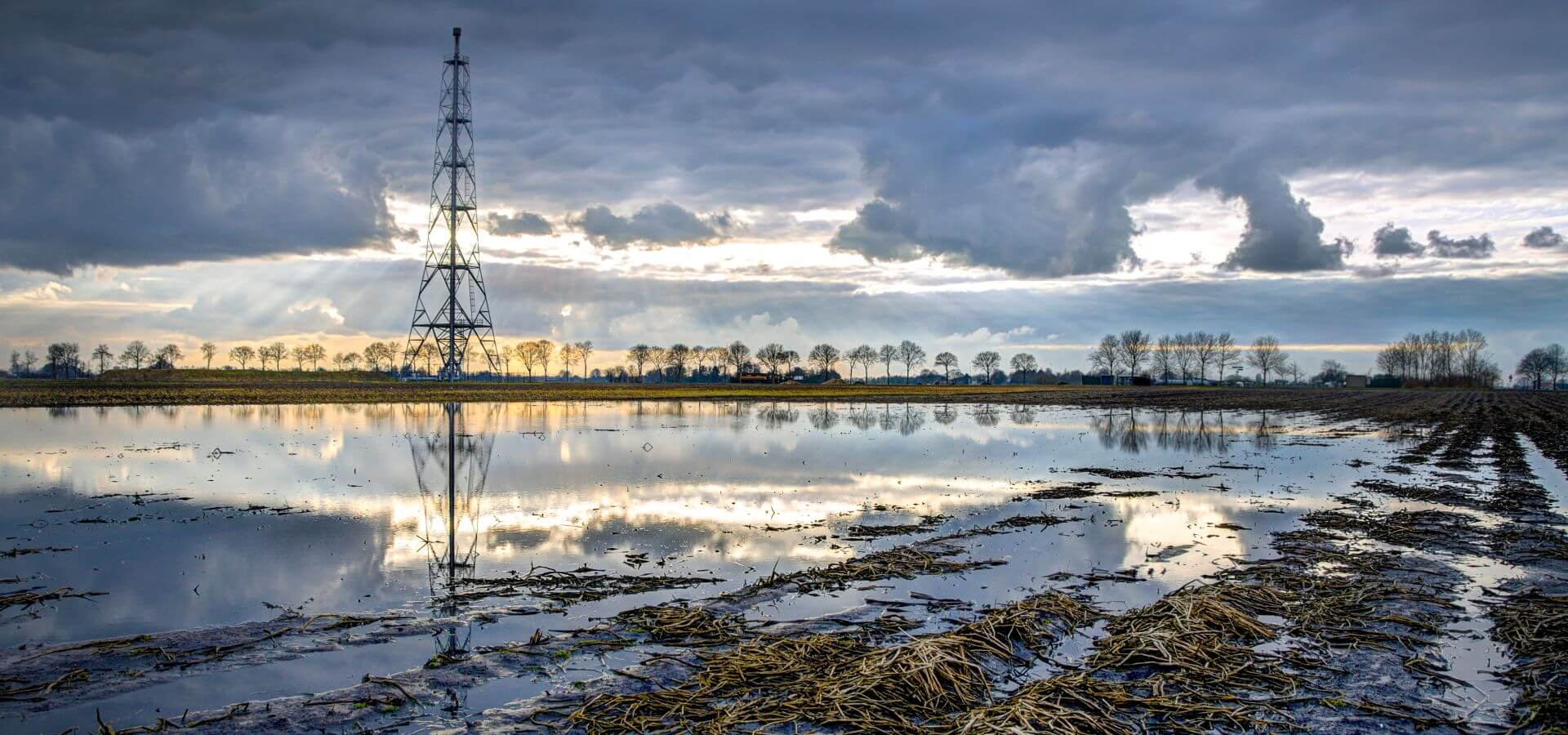
Earthquake risks in the Netherlands have locals unwilling to plug the Russia-related energy shortfall.
eyesonsuriname/ D Baazil
Amsterdam, 20 Jan 2023 — Beneath the windmill-dotted marshlands of the Netherlands lies Europe’s largest natural gas reserve. The sprawling Groningen field has enough untapped capacity to replace, as soon as this winter, much of the fuel Germany once imported from Russia.
Instead the field is in the process of shutting down, and the Netherlands is rebuffing calls to pump more, even as Europe braces for perhaps its toughest winter since World War II. The reason: Drilling has led to repeated earthquakes, and Dutch officials are loath to risk a backlash from residents by breaking promises.
Natural Gas Production From the Groningen Field
- Cubic meters
- Source: Nederlandse Aardolie Maatschappii
Groningen has been a mainstay of Europe’s gas supplies since 1963. Even after a half-century, there’s still about 450 billion cubic meters of extractable gas in reserve—worth around $1 trillion. More critical, there’s room to extract around 50 billion cubic meters per year more than is flowing at present, according to Shell Plc, one of the two major partners involved in operating it.
Locals, though, say the continent needs to look elsewhere. Wilnur Hollaar, 50, who’s lived in Groningen for almost two decades, is still seething over the way officials ignored his concerns. “When I bought this house in 2004, it was a palace,” Hollaar says of his home, which was built in 1926 and features stained-glass windows and detailed stonework. But like thousands of homes in the area, it’s been damaged by quakes; it’s full of cracks and the facade is sinking. “My house has turned into a ruin,” he says.
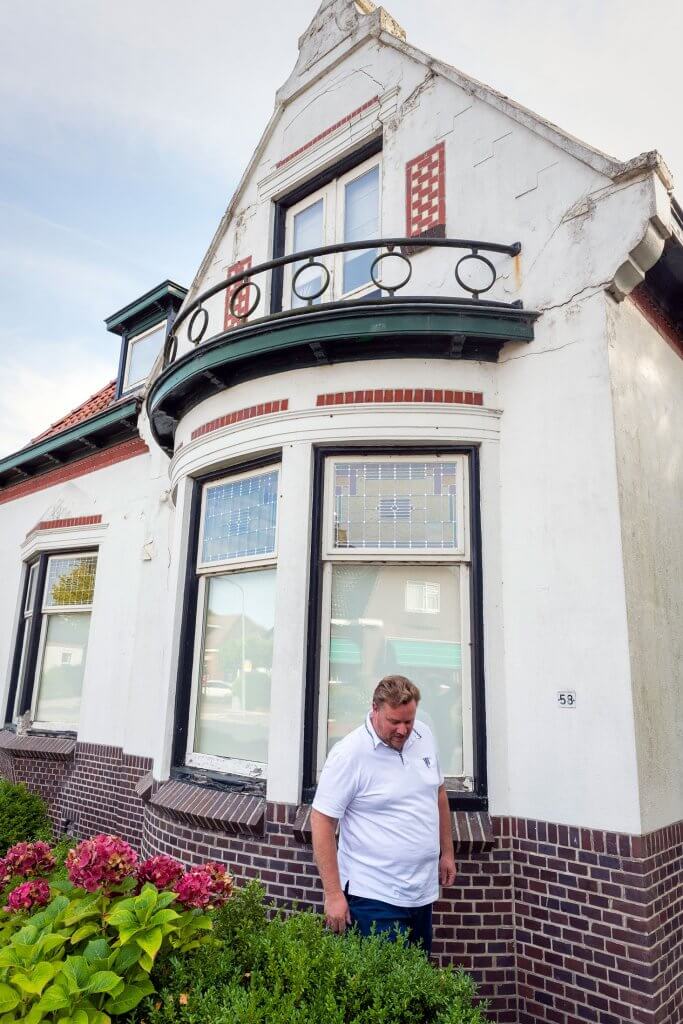
Photographer: Imke Lass/Bloomberg
Dutch mining minister Hans Vijlbrief says that it’s dangerous to keep producing but that the country can’t ignore suffering elsewhere in Europe. A lack of gas “could force us to make that decision,” he says, adding that it could be a safety issue if hospitals, schools, and homes can’t be heated properly.
Russia, which accounted for about a third of Europe’s natural gas imports before it invaded Ukraine, has curbed supplies in response to sanctions. And recent explosions on the Nord Stream pipeline have effectively cemented the reduced level of flows to Germany. The extra flow that Shell estimates could be brought online almost immediately would be more than enough to replace the 46 billion cubic meters Germany imported from Russia last year.
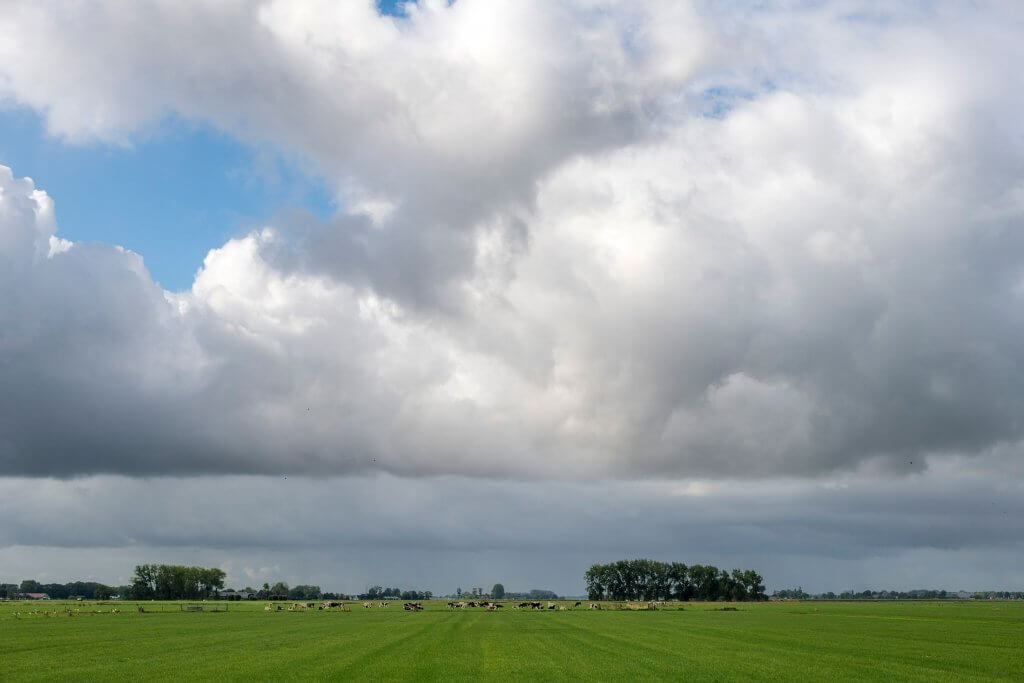
Photographer: Imke Lass/Bloomberg
Dutch officials have said that if Germany needs more energy, a safer option would be to further prolong the life of its nuclear plants. Germany has opened the door to such a move, which would be a policy reversal if implemented. The government said last month that two facilities slated for closure would be available beyond this year if needed.
European Union Internal Market Commissioner Thierry Breton said in a recent speech that the Netherlands should reconsider its decision to close Groningen, and Vijlbrief has been pressed by counterparts from other EU nations as well, but the country is holding the line for now. Prime Minister Mark Rutte won’t entirely rule out using Groningen to bolster supplies, but “only in an extreme case if everything goes wrong,” he says, and it isn’t needed right now.
Groningen recorded its first small tremors in 1986. Since then, there have been hundreds more. Although most are undetectable except by instruments, a magnitude 3.6 earthquake hit the province in 2012, resulting in thousands of property damage claims. Starting in 2014, the Dutch government has placed ever-stricter limits on production from the field, and the output dropped from 54 billion cubic meters in 2013 to an expected 4.5 billion cubic meters this year.
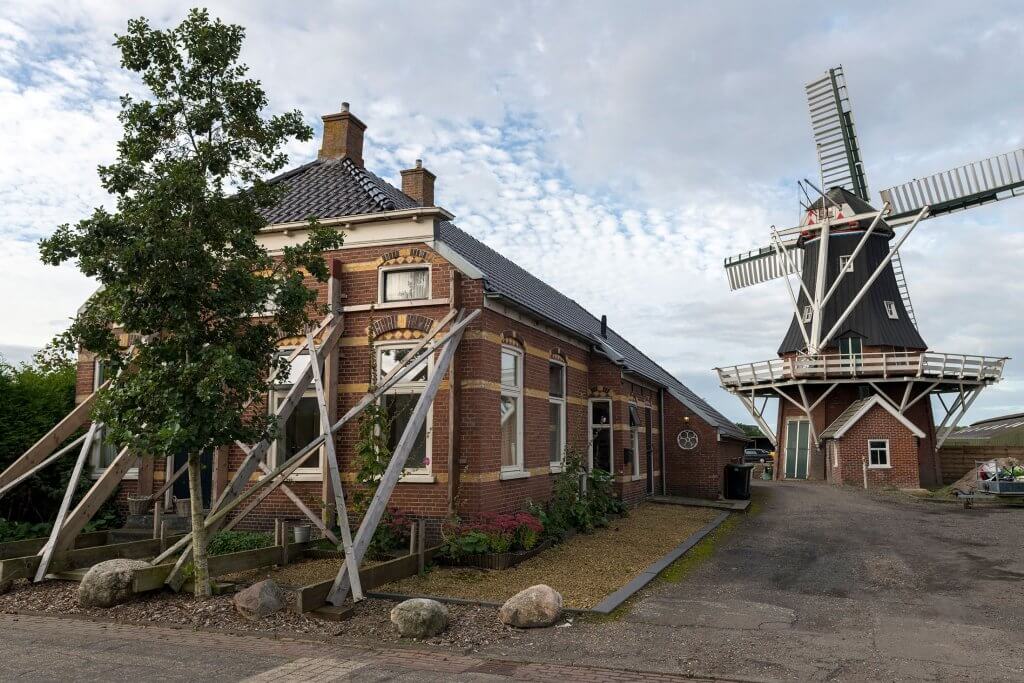
Photographer: Imke Lass/Bloomberg
Of the approximately 327,000 homes in the region, at least 127,000 have reported some damage, according to the Groningen Mining Damage Institute. More than 3,300 buildings have been demolished in the area since 2012 because earthquakes have rendered them unsafe, Dutch broadcaster NOS reported.
Rutte delivered a public apology before parliament in 2019, but the Dutch government is still reeling from accusations that it was insensitive to complaints and happy to rake in revenue. Adjusted for inflation, the field yielded a total profit of €428 billion ($422 billion), of which the Dutch state received €363.7 billion over the past 60 years, according to newspaper Het Financieele Dagblad.
Around Groningen, passions run high. Hollaar was offered compensation of just €12,000 for damage to his home in Roodeschool. He reckons the value of his house plunged by €550,000 and says he was convicted of threatening an inspector who evaluated it.
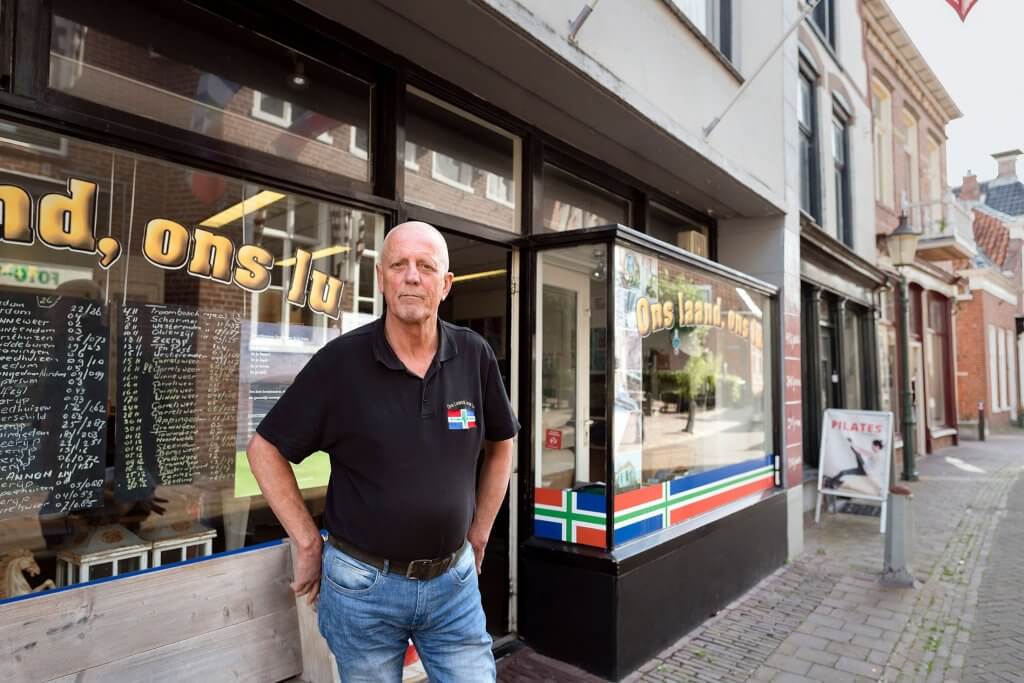
Photographer: Imke Lass/Bloomberg
Albert Heidema, 69, retired after working as an agent combating drug trafficking and now chairs a local action group called Ons Laand that fights against what he calls “the injustice” he says Groningers face. Back in 2015 an inspector told him his house in Appingedam was “broken in half,” but he’s been waiting since then for an official decision on demolition. He underscores the area’s plight by showing pictures of damaged houses, stacks of paperwork, and the town’s earthquake meter, which registers every vibration. “The earthquakes really get under your skin,” he says. “At night every sound wakes me up. I feel unsafe in my own house.”
The Groningers’ predicament has won the sympathy of a growing number of Dutch voters and even prompted a skewering of the government by a popular late-night television host, whose riff on the situation went viral online.
Vijlbrief acknowledges that over the years the Dutch government has let down people such as Hollaar. Together with Nederlandse Aardolie Maatschappij—the Shell and Exxon Mobil Corp. venture that runs the field—the government’s already paid €1.65 billion in compensation. But that’s a fraction of what residents want. Although taking some of the blame on behalf of the government, Vijlbrief also wants Shell and Exxon to play a bigger role in compensation. “They’re totally responsible—like we are as the state—for these damages and for the reinforcement of the houses,” he says.
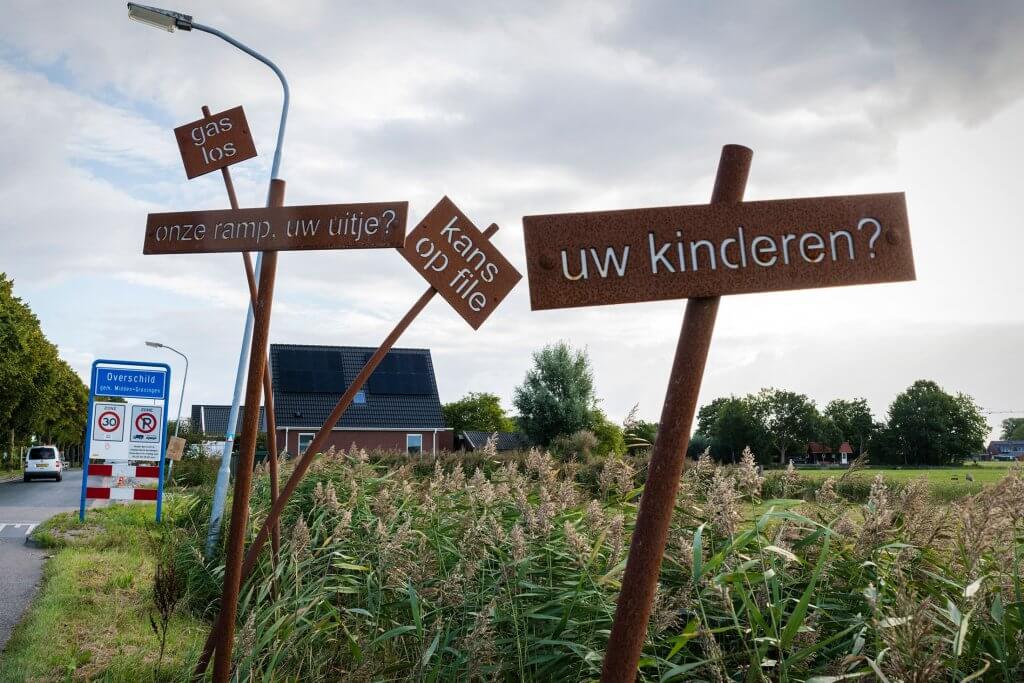
Photographer: Imke Lass/Bloomberg
Shell is “fully cooperating” with authorities to shut the field as soon as possible and is “perfectly aware” of its responsibility, spokesperson Tim Kezer wrote in an emailed response to questions. “NAM is responsible for all earthquake-related costs,” and it always compensates for earthquake damage and reinforcement necessary for safety, he said. Exxon didn’t respond to Bloomberg News’ emailed questions on the issue, while NAM declined to comment on its role in compensation and referred queries to Shell and Exxon.
Rather than boosting gas output, the Netherlands has instead removed limits on coal-fired power plants to help ensure energy security, joining other EU members in turning to the heavily polluting fuel. It also doubled import capacity for liquefied natural gas and filled gas storages to ensure they’re 80% full before winter.The NAM gas extraction and treatment site.
Photographer: Imke Lass/BloombergThe situation this winter might be “rather safe,” Vijlbrief says, but he’s more worried about what will come afterward. “If you would drain these reserves totally because of a cold winter, how are you going to fill them again?” he asks.
Many Groningen residents are bracing for the government to reverse its decision and eventually increase output as pressures mount. “Even if it will kill me, I will continue my fight,” Hollaar says. “I have an old dog and an old mum and a broken house. That’s all I have to lose.”
eyesonsuriname / K. Whitelaw / D. Baazil









